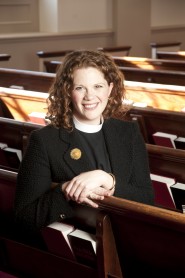KEEPING FAITH
 When a member of a faith community is dying the role of clergy is clear. At the end of life clergy is often present, and certainly ministering to the family at such times is an essential presence in faith based lives. However, long before the end of life when congregants are making health care plans, doctors and lawyers are frequently consulted but the role of clergy has traditionally been less clear. Viewed more expansively, however, faith based health care planning discussions, lead by clergy, can help individuals make decisions that are informed by their beliefs, and which may provide significant connections to the broader community-based lives of congregations.
When a member of a faith community is dying the role of clergy is clear. At the end of life clergy is often present, and certainly ministering to the family at such times is an essential presence in faith based lives. However, long before the end of life when congregants are making health care plans, doctors and lawyers are frequently consulted but the role of clergy has traditionally been less clear. Viewed more expansively, however, faith based health care planning discussions, lead by clergy, can help individuals make decisions that are informed by their beliefs, and which may provide significant connections to the broader community-based lives of congregations.
We recently had the opportunity to talk with the Reverend Laura Everett, Executive Director of the Massachusetts Council of Churches, who focused our discussion on the opportunity that Clergy can have, “in talking with congregants about making faithfully informed health care decisions long before a crisis situation.”As she says, “End of life care is an invitation to look at our deepest values” and to ask, “What do I believe about life? What do I believe about the commitment I have to my family and my community? What does it mean to live well in my faith, and die well?”
Clergy can have a central role in “asking these big questions and exploring their meaning within our faith communities,” as a means“to support congregants in their personal journey of making faithfully informed choices.” As we talked we explored the manner is which“religious communities have a central role to play in health care planning discussions” because helping congregants make a health care plan, is “a gift to family and a gift to the wider community.”
Reverend Everett pointed out that “We know that making a plan helps families get better care and reduces stress and anxiety in a time of crisis” acknowledging that for example “to have the words of your mother with you when she can no longer speak for herself,” thereby “giving you counsel and wisdom on how to take care of her,” can be “a gift your mother has given you.” To be able to have her words has the power to “lessen your burden and bring some comfort at a time of potential anxiety and complex decision making.”
In Reverend Everett’s view “Religious communities are a way of remembering that we live in a web of relationships,” and that “To do some praying, planning and thinking about end of life decisions and to write your wishes down in a personal plan long before a crisis situation, is also a gift to the wider community.” Recognizing that end-of-life planning can be “a way of modeling faithful behavior and acknowledging, now, that death will come to us all.” She adds that it can help “by recognizing your values” and that involving“your community is a way of saying- In my death, I want my community that has raised me, that has formed me, that has cared for me, that will bury me, to be a part of my decision making process.”
As a congregation,“This is something we can do together.”
Read more of our conversation with Reverend Laura Everett on the Explore page.
